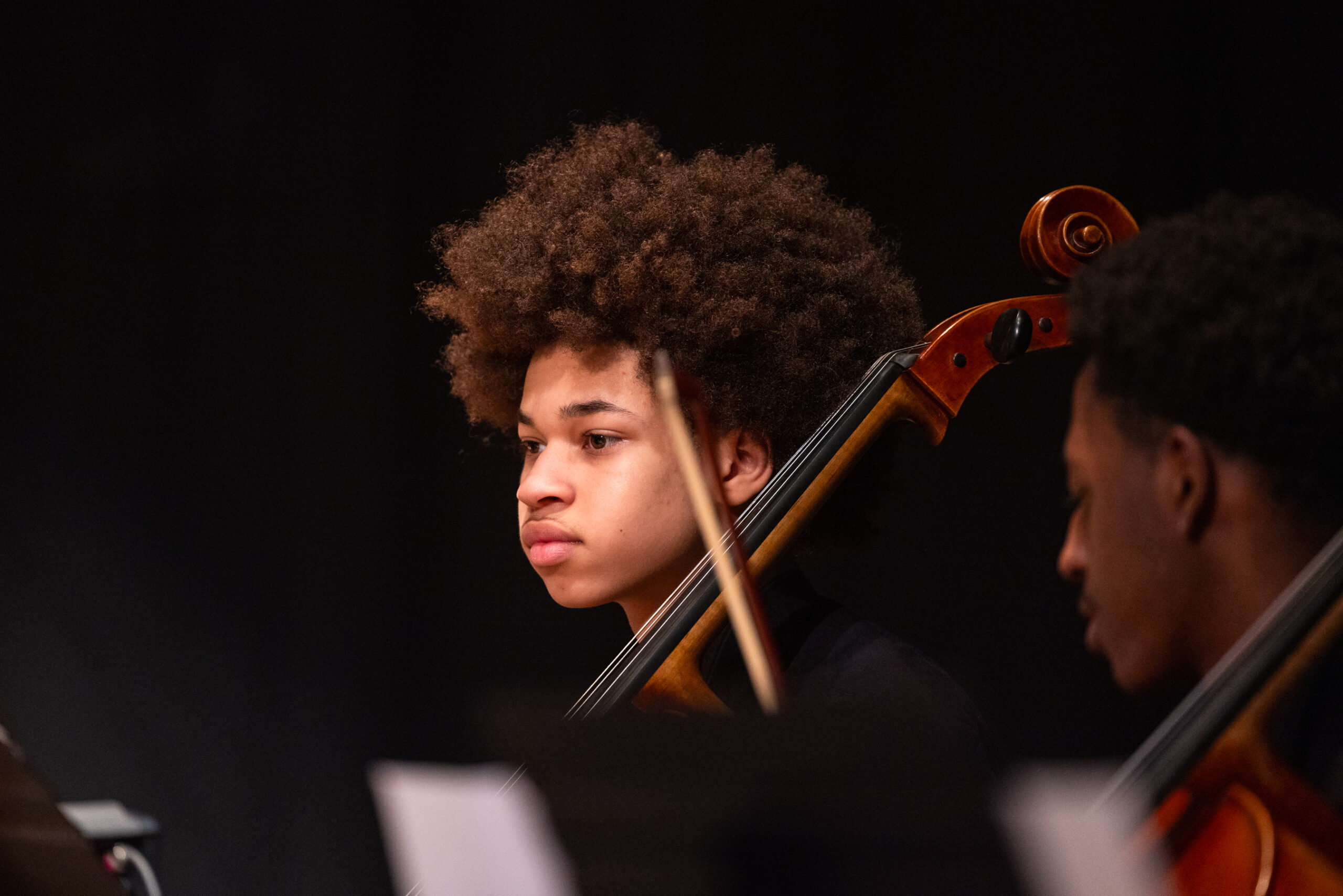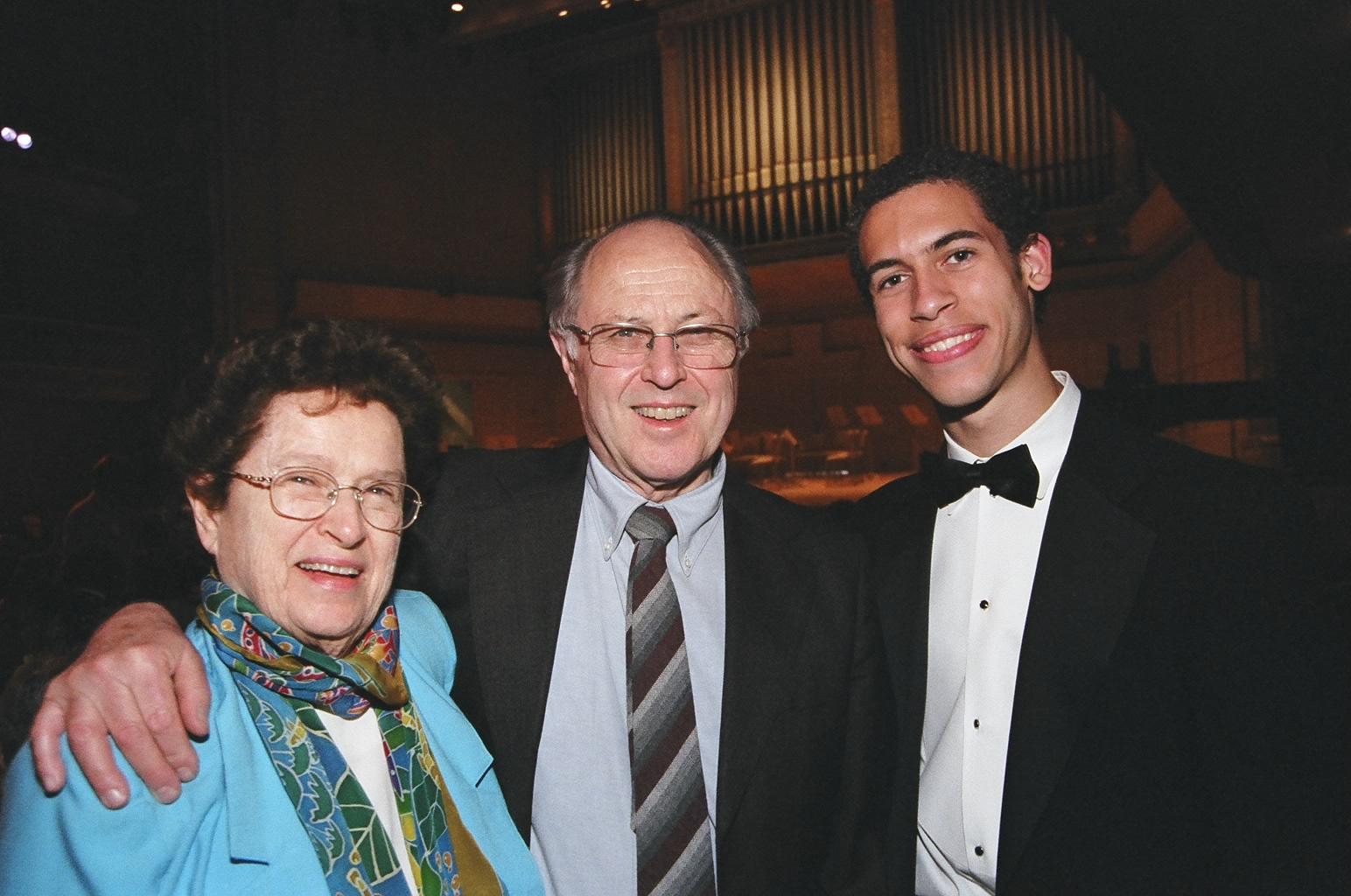
Project STEP (String Training Education Program)
violin, viola, cello, and double bass
While many educational programs in New England offer music training for children, they do not match Project STEP’s comprehensive package of high-quality long-term training, support services, and scholarships intended specifically for children from backgrounds underrepresented in classical music. Our students are able to break through socio-economic barriers to become excellent musicians, creative and confident students, and successful young adults. Spending up to 12 years in Project STEP, our students are challenged to achieve and maintain high levels of musicianship. The perseverance, social and leadership skills, self-discipline, confidence, problem solving skills, and strong work ethic they develop in the process prove to be invaluable in their future musical and non-musical pursuits. As students in Project STEP, our students gain deep skills, as well as learning and career opportunities that make them role models and mentors in their families and communities. Photos right by Matthew Muise.
of Project STEP graduates attend college or conservatory
of Project STEP graduates continue in the field of music as a profession
students are currently studying in STEP’s core program
years students can study in STEP’s Core Program
Project STEP (String Training Education Program) champions equitable access to comprehensive music education for students from racial and ethnic backgrounds underrepresented in Western classical music.
We acknowledge and address the unique challenges that Black and Latino students can face as we nurture all of our students’ musical growth.
Community
Collaboration
Excellence
We strive to provide student-centered support by cultivating community, collaboration, and student excellence through music.
Around 1980, members of the Boston Symphony Orchestra community began asking questions about the identity and future of classical music:

doesn’t the classical music profession reflect the diverse ethnicities and backgrounds of our communities?
will classical music continue to attract audience members from the communities that surround its great halls if ensembles do not include more people from underrepresented populations?
can we do to provide training for underrepresented children with musical talent and expand their access to the world of classical music?

Betsy Moyer, Bill Moyer, and Tony Rymer (2007 STEP Alumnus)
William Moyer, then-Orchestra Personnel Manager of the Boston Symphony Orchestra, was charged with finding musicians from underrepresented populations to audition for open spots in the orchestra. He crisscrossed the country and could not find any that had the extensive music training required to take these auditions. His conclusion: “If we’re serious about this, we must start a program.” With initial support from the Boston Symphony Orchestra and others in the Boston area, he helped design and launch Project STEP (String Training Education Program) to provide that comprehensive and long-term training, and a lasting connection to the surrounding community.
The program opened its doors in 1982 with 7 students, and graduated its first two students in 1988. Since that time we have introduced 2,000 children to music through our FOCUS and core programs. In contrast with Boston’s 4-year graduation rates for Black and LatinX students (which declined in 2019 to 76.4% and 67%, respectively), 100% of Project STEP’s graduates attend college or conservatory.
Recent graduates have attended Juilliard, Harvard, the New England Conservatory, and Brown. Our graduates have gone on to become orchestra members, founders of other programs modeled on Project STEP, music teachers, and soloists, as well as financial services advisors, doctors, and architects. We consider Project STEP to be a model for creative youth development where music is used to help young people develop key skills and find success throughout their lives.
Copyright © 2025, Project STEP. All Rights Reserved. | Privacy Policy
Yelling Mule - Boston Web Design
